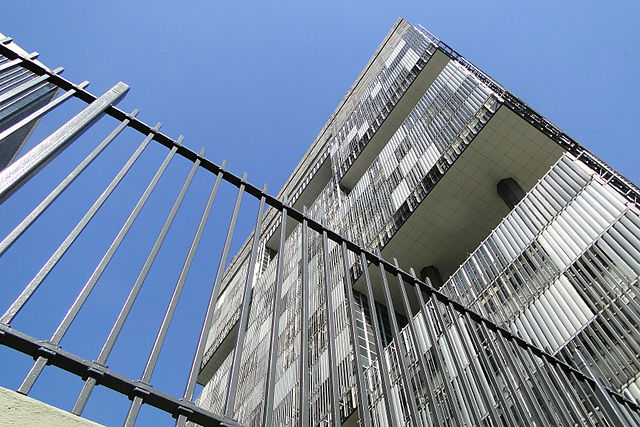
Why Resource Governance Matters in Brazil's Elections
With only two days left before Brazil’s general elections, a corruption scandal involving the country’s state-owned oil and gas company has become a dead weight around the neck of the ruling party.
Lava Jato, or “Car Wash” in English, is a federal investigation into a money laundering scheme run by the former director of Petrobras, Paulo Roberto Costa. Since his arrest earlier this year, Costa has accused more than 40 members of parliament (MPs), 12 senators and a former governor of having benefited from bribe payments. Among those implicated was Eduardo Campos, a presidential candidate who died in a plane crash in August. The situation has made things complicated for Marina Silva, who replaces Campos in Sunday’s race against incumbent Dilma Rousseff.

Petrobras headquarter building in Rio de Janeiro
Photo: Adam Jones - CC-BY-SA-3.0
Some believe the bribes were meant to win political support for Petrobras as it aims to develop Brazil’s pre-salt fields, where deep-sea oil has been discovered. But in the heavily charged presidential race, all the darts have gone to President Rousseff herself, who in those years served as president of the company’s board of directors. In addition to the police investigation under way, opposition forces are urging the Senate to launch its own probe, potentially setting the stage for an impeachment.
This is not an isolated corruption scandal for Petrobras. This year alone, the company has been investigated for two other serious offenses. The first involved company officials who reportedly received bribes in exchange for privileged information passed on to SBM Offshore, a Dutch oil company. The second involved the purchase of an American refinery from Astra Oil, a Belgian group, for six times what Astra paid for it months earlier.
So far, Congress has tasked a joint parliamentary research committee with researching the scandals, but the ruling party has managed to slow down the investigations and dilute the verdicts so as to minimize damage to President Rousseff´s re-election bid. In her defense, the ruling party has blamed the directors of Petrobras for operating beyond the board´s control. They have also highlighted the need for new control mechanisms among the company´s high-level staff.
The results will have to wait, but there is no doubt that even the most reputable national oil companies should be subject to intense oversight from Congress, the media and especially citizens, who are ultimately the owners of the natural resources and the public rents they generate.
Alonso Hidalgo is NRGI’s information and communications assistant.
